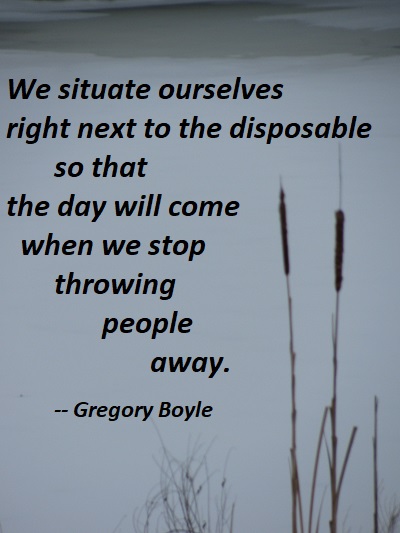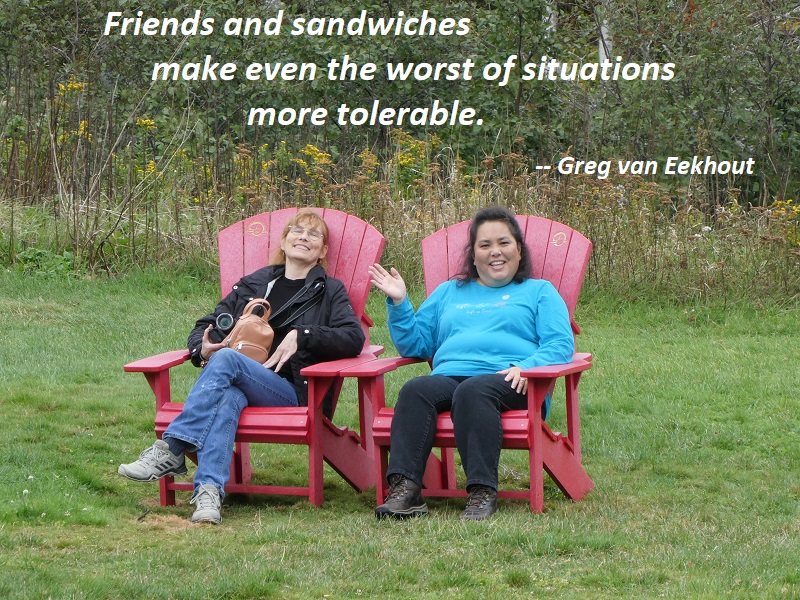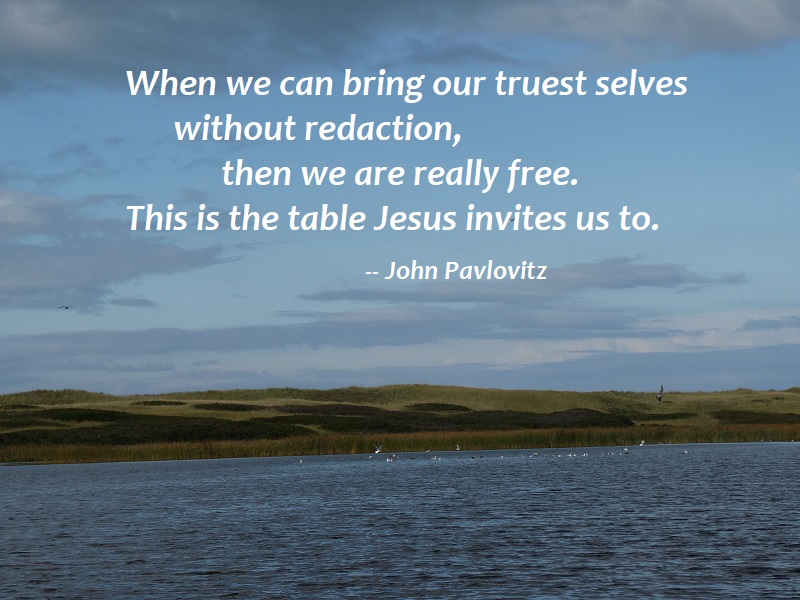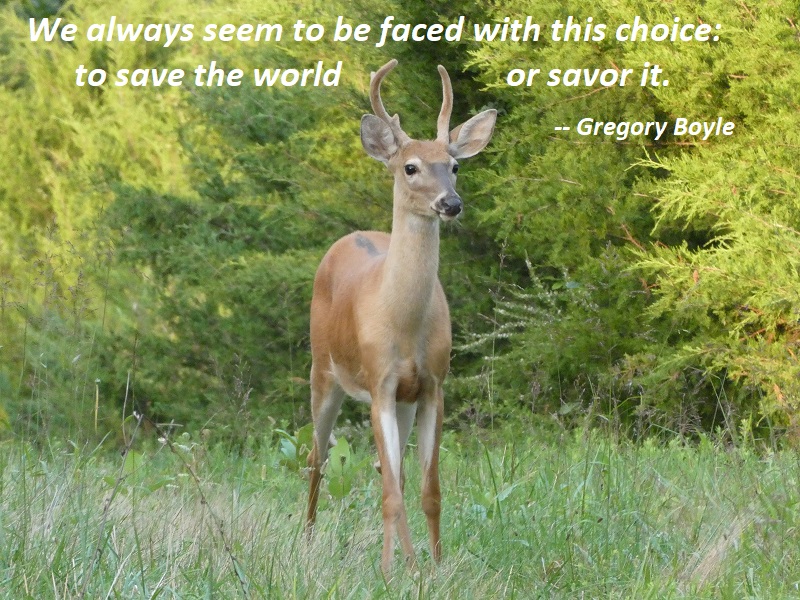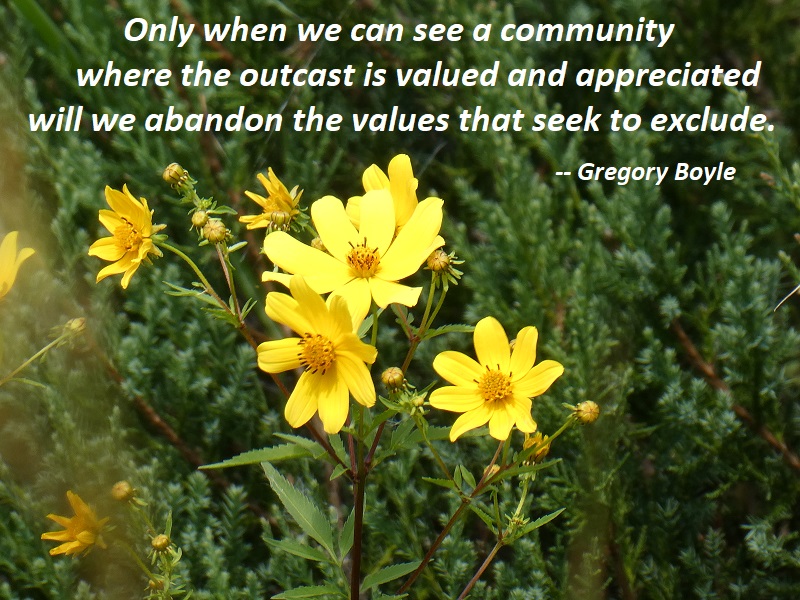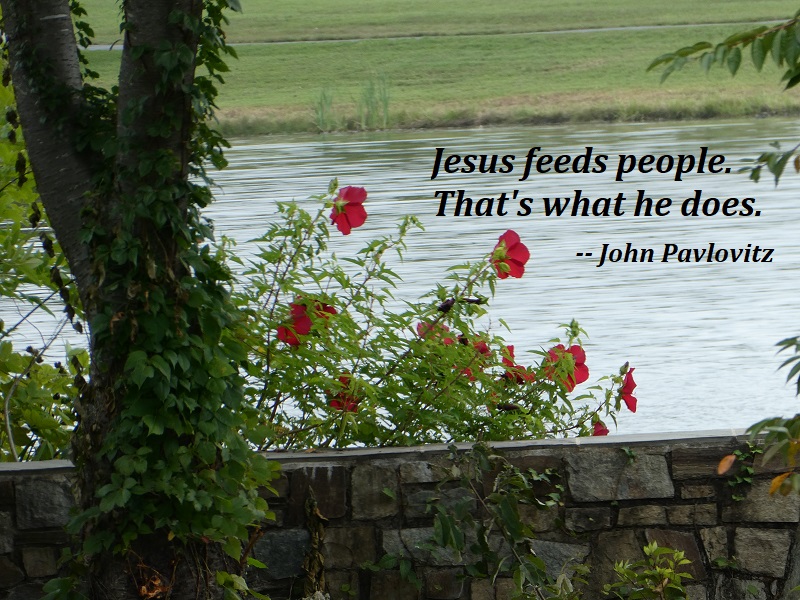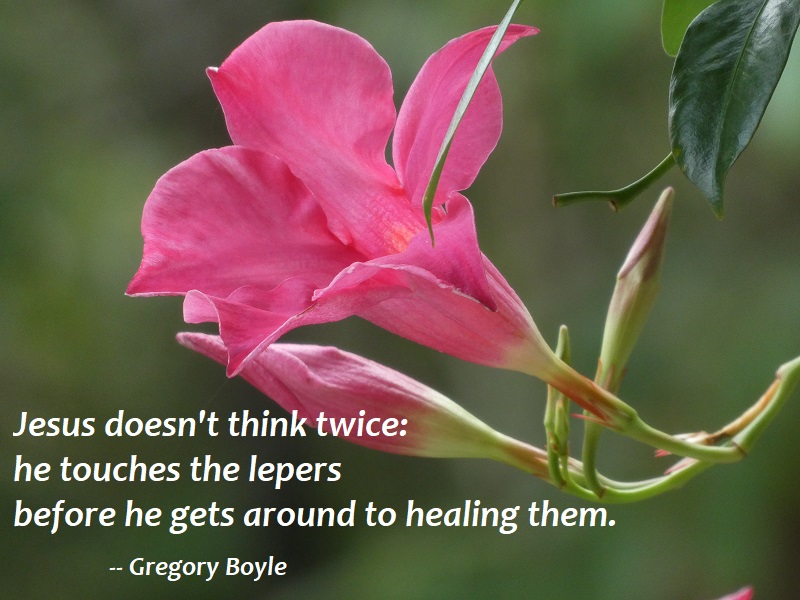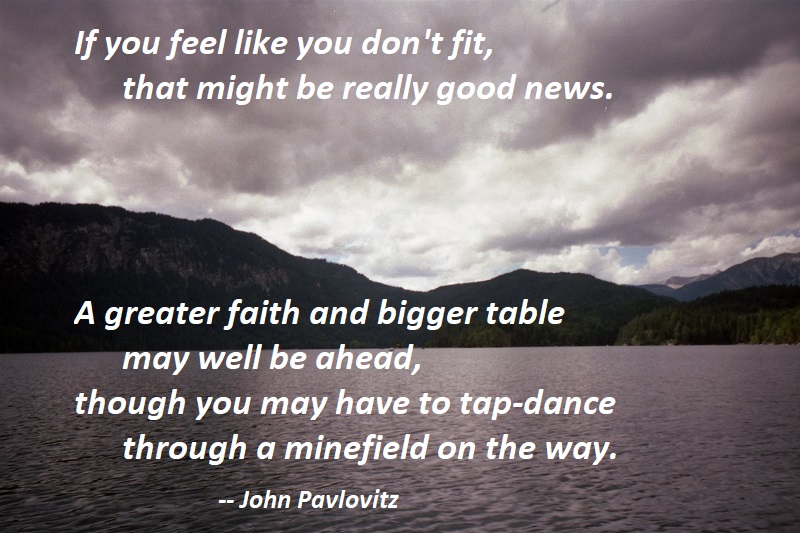Kinship
No daylight to separate us.
Only kinship. Inching ourselves closer to creating a community of kinship such that God might recognize it. Soon we imagine, with God, this circle of compassion. Then we imagine no one standing outside of that circle, moving ourselves closer to the margins so that the margins themselves will be erased. We stand there with those whose dignity has been denied. We locate ourselves with the poor and the powerless and the voiceless. At the edges, we join the easily despised and the readily left out. We stand with the demonized so that the demonizing will stop. We situate ourselves right next to the disposable so that the day will come when we stop throwing people away. The prophet Habakkuk writes, “The vision still has its time, presses on to fulfillment and it will not disappoint . . . and if it delays, wait for it.”
Kinship is what God presses us on to, always hopeful that its time has come.
— Gregory Boyle, Tattoos on the Heart, p. 190
Photo: South Riding, Virginia, February 22, 2015
